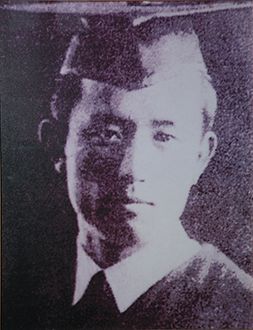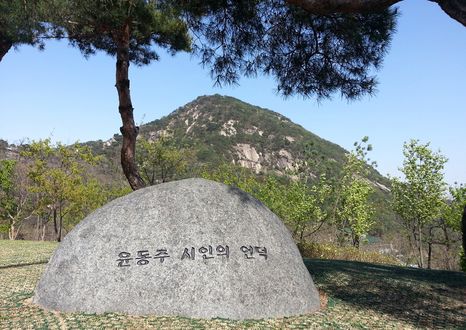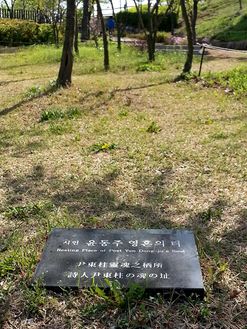Beloved Poet and Independence Activist, Yun Dong-ju
Yun Dong-ju (1917-1945) was one of the most beloved poets and independence activists who lived under the Japanese colonial rule. Since end of the 1930s, Japan implemented a policy of annihilating Korean culture. They forced Koreans to change otheir names into Japanese ones and prohibited the use of the Korean language in schools, publications and government offices. Resisting this censorship policy, Yun Dong-ju wrote poems in Korean, and in them mainly depicted his introspection to overcome the gloomy reality facing Koreans.
Despite the strong oppression by the colonial authority, Yun began to write essays and poems in his middle school days, and continued through his college days. As a student at Yeonhi College (which later became Yonsei University), he wrote poems such as "Self Portrait" and "A New Way" that were published in the college newspaper. His poetry world mirrors his unique meditations with a sense of history as an intellectual who lived during a dark era.
Notwithstanding his firm anti-Japan sentiments, Yun had to go to Japan to study after graduating from Yeonhi College in 1941 to avoid being drafted into the wartime army. For study in Japan, he had to change his family name to a Japanese one. He expressed his sense of humiliation at that time in the poem, "Confessions," featuring the shame of losing one’s homeland and fierce self-reflection with deep introspection on his passive and lethargic life that had refrained him from confronting the stigmatic history.
During his study in Japan, Yun had frequent discussions with his cousin Song Mong-gyu on subjects of reality and independence of Korea, and they were arrested by Japanese police in 1942 for alleged infringement of the public order maintenance act and imprisoned in February 1944. Both Yun Dong-ju and Song Mong-gyu died in jail in early 1945 under suspicious circumstances. While in jail, Song Mong-gyu told his relatives that he received suspicious injections every night, arousing speculation that they were victims of in vivo medical experiments.
In celebration of his graduation from college in 1941, Yun Dong-ju had attempted to publish a collection of his poems, entitled "Sky, Wind, Stars and Poems," by editing 19 poems, but failed. After Korean independence in 1945, Yun’s juniors in college, including Jeong Byeong-uk, published an increased collection of his poems under the same title in 1948.
Related Articles
- Shouts for Independence through Wails of Sorrow - The Japanese Occupation Period
- The Independence Movement and Liberation
- Yun Dong-ju
- Song Mong-gyu
- Jeong Byeong-uk
- Japanese occupation of Korea
- Yonsei University
- World War II


